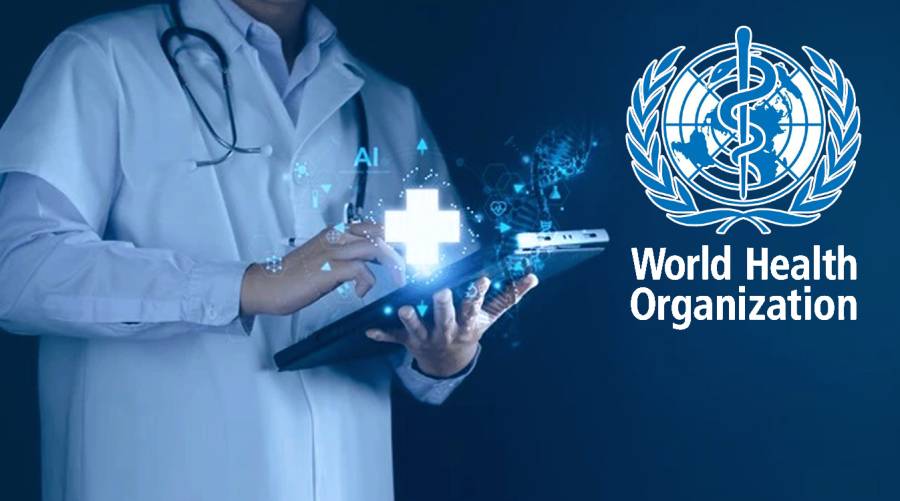WHO unveils strategies for responsible AI use in healthcare sector

GENEVA: The World Health Organization (WHO) has released extensive guidance on the ethical considerations and governance of Large Multi-Modal Models (LMMs), a rapidly advancing form of generative artificial intelligence (AI) widely applied in the healthcare sector.
With over 40 recommendations targeting governments, technology companies, and healthcare providers, their objective is to promote the responsible and beneficial use of LMMs, safeguarding the well-being of global populations.
LMMs, distinguished by their capacity to process various data inputs like text, videos, and images, and generate diverse outputs, have found significant application in healthcare. They excel in mimicking human communication and executing tasks not explicitly programmed for. Dr. Jeremy Farrar, WHO Chief Scientist, underscores the potential of generative AI technologies in healthcare but emphasizes the necessity for transparent information and policies to address associated risks.
The guidance identifies five primary applications of LMMs in healthcare, including diagnosis and clinical care, patient-guided use, clerical and administrative tasks, medical and nursing education, and scientific research and drug development.
Despite their promise, LMMs pose risks, including the potential for generating inaccurate or biased information. The guidance also addresses broader healthcare system risks, such as accessibility, affordability, 'automation bias,' and cyber security threats.
To ensure the safe and effective development of LMMs, the WHO stresses the engagement of various stakeholders, including governments, technology companies, healthcare providers, patients, and civil society, throughout development, deployment, and regulation stages.
Dr Alain Labrique, WHO Director for Digital Health and Innovation, calls for global cooperation in regulating AI technologies, stating that governments worldwide must collaboratively lead efforts in this regard.
Key recommendations in the guidance include governments investing in or providing not-for-profit or public infrastructure for developers, ensuring adherence to ethical principles and values. Governments are also advised to use laws, policies, and regulations to enforce ethical and human rights standards for LMMs in healthcare. Developers are encouraged to engage potential users and stakeholders in the design process, ensuring structured, inclusive, and transparent practices.
The WHO's comprehensive guidance aims to harness the potential of LMMs in enhancing healthcare while minimizing associated risks and ethical concerns.
Trending
Popular
Smoking’s lingering impact: How long does heart take to heal?
-
Boost your muscle gains with these ...
09:00 AM, 21 Dec, 2024 -
Managing stress no longer a luxury, ...
09:00 PM, 21 Dec, 2024 -
After evening large meals may fuel to ...
06:00 PM, 21 Dec, 2024 -
‘Sleep Apnea is a silent brain ...
03:10 PM, 21 Dec, 2024




